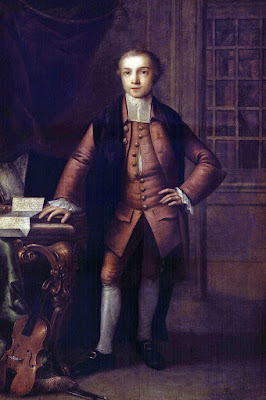Note: There is a difference between the old and new styles of calendar, which will become relevant to our discussion.
Some Wikipedia articles are reliable, while others are not (and others are somewhere in between)
So I've often enjoyed reading articles from
Wikipedia, and have linked to a number of these articles from my own blog over the years. Some of these articles are reliable, while others are not. Many of them are somewhere in between. Possibly one of these articles to be somewhere in between is the
article about William Blackstone, which contained some good information about William Blackstone, and some bad information. For example, the
"Criticism" section of that page said that “English jurist
Jeremy Bentham was a critic of Blackstone's theories.
[132] Others saw Blackstone's theories as inaccurate statements of English law, using the
Constitutions of Clarendon, the
Tractatus of Glanville and the
1689 Bill of Rights as particularly obvious examples of laws Blackstone omitted.” (Source:
"William Blackstone" page, "Criticism" section)
Jeremy Bentham
According to Wikipedia, some have claimed that Blackstone “omitted” the 1689 Bill of Rights
The part about how “English jurist
Jeremy Bentham was a critic of Blackstone's theories” is properly sourced at the “
[132]”. While I don't agree with Bentham's criticisms (indeed, I find them wildly inaccurate), I do agree that he was “a critic of Blackstone's theories” – this much is pretty well-established, and that is all that the source claims here. But the second sentence has no source, which makes me wonder who exactly is making these criticisms. The sentence in question says that “Others saw Blackstone's theories as inaccurate statements of English law, using the
Constitutions of Clarendon, the
Tractatus of Glanville and the
1689 Bill of Rights as particularly obvious examples of laws Blackstone omitted.” Blackstone did mention both the
“Constitutions of Clarendon” and the
“Tractatus of Glanville” in his
magnum opus, the
"Commentaries on the Laws of England" (as I show in
another blog post). And most relevantly, he also mentioned the
“1689 Bill of Rights,” which these critics would know if they had bothered to read the
very first chapter of the very first book of the “Commentaries.”
Jeremy Bentham









